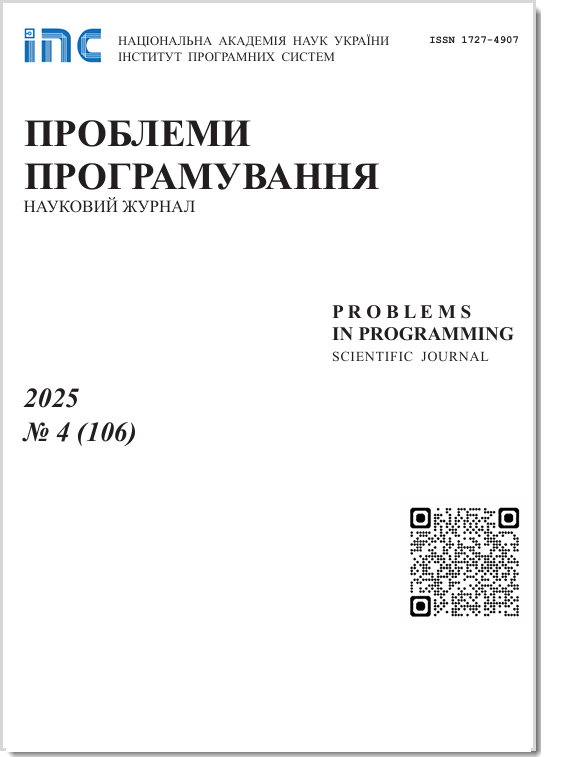Innovative pedagogical computer technology optimization school community in the aspect of knowledge about the biosocial personality structure of its members
Abstract
The article discusses modern computer technologies to support the functioning of the school collective on the basis of an individual-typological approach to improve the efficiency of training and preserve the biosocial health of its members. From the standpoint of the principles of integrity, consistency, dynamism, rhythmology and interdisciplinary, the sociopsychophysiological dynamic portrait of the collective, its individual adaptation information space (IAIS) – a rational environment for life (design), was considered. The technological scheme offers for consideration fundamentally new service components: the biosocial culture of the student (knowledge of his adaptation capabilities), monitoring for the constant harmonization of the collective, a personologist – interdisciplinary, more responsible for the psychological climate of the environment. Individually typological approach to understanding the mechanisms of individual (rather than average) human adaptation, the tandem "professional competence – biosocial culture" together with active computerization can become a "breakthrough moment" in modern human knowledge and humanity, thereby significantly increasing the level of economic potential and culture of the country.
Problems in programming 2019; 4: 121-131
Keywords
Full Text:
PDF (Українська)References
Kuzmina K.I. Psychophysiological mecha-nisms of individual adaptation of the organism under the action of various exoge-nous factors: dis. Dr. biol. sciences. Kiev, 1995. 356 p.
Kuzmina K.I. Human and his biosocial culture. Theory and practice of management of social systems: philosophy, psychology, pedagogy, sociology. Kharkiv. 2005. N 1. P.109 – 120.
Novikov B.V. Creativity as a way of realizing humanism. Monograph. K.: Publisher PARAPAN, 2005. 332 p.
Kuzmina K.І., Syomik T.M., Kunitsya T.A. Features of the study of psychological climate in the collective. Chapter 5. The collective monograph "Perspective trends in the development of science: education and upbringing, sport". Included in the RSCI SCIENCE INDEX Odessa: Kuprienko SV. 2016. P. 115 – 128.
Kuzmina K.I., Syomik T.M. Health-saving technologies and computer systems in modern human science for the rational organization of the human life cycle. Problems of Software. 2017. N 3. P. 172 – 193.
Kuzmina K.I., Onoprienko V.N., Kozak N.S., Syomik T.M., Andon T.A. Family medicine today and the problem of its further intellectualization with the help of information technologies and computer systems. Theory and Practice of Social Systems Management. Kharkiv: NTU "KhPI", 2012. N 2. P. 56–67.
Kuzmina K.I., Syomik T.M., Andon T.A. Modern information technologies for studying the mechanisms of individual psycho-physiological adaptation of a person. Problems in Programming. 2008. N 2-3. P. 695–702.
Design. Illustrated dictionary-reference book / Minervin G.B., Shimko V.G., Efimov A.V. and others / under total. ed. B. Minervina, V.G. Shimko. M.: "Architec-ture. – C", 2004. 228 p.
Kuzmina K.I., Syomik T.M., Andon T.A. Sociopsychophysiological knowledge – innovative reserve for improving the quality of electronic libraries (EL). "Innovations in Science": materials of the XII International Correspondence Scientific and Practical Conference. Part I. (September 17, 2012). Novosibirsk: Izd. "Siberian Association of Consultants", 2012. P. 31–43.
Hyeell L., Ziegler D. Personality theory. 3rd ed. SPb: Peter, 2013. 607 p. (A series of "Masters of Psychology").
Kopets L.V. Psychology specialty: A manual for students in higher education – 2nd edition. K.: Publishing House. "Kyiv- Mogilyan Academy", 2008, 458 p.
Teplov B.M. New data on the study of the properties of the human nervous system. Typological features of the higher nervous activity of human. M.: Medicine, 1963. Vol. 3. P. 34 – 46.
Nebylytsyn V.D. Psychophysiological studies of individual differences. M.: Science, 1976. 336 p.
Eysenck H.S. The biological basis of personality. Illinois: Springfield, 1967. 202 p.
Strelay J. Temperament I typ uklady nerwowego. Warszawa: Panstwowe Wudawnictwo Naukowe, 1974. 231 p.
Bukalov A.V. Integral Socionics, types of groups, states, ethnosocionics. Socionics, mentology and personality psychology. Kiev. 1998. N 5. P. 13 – 17.
Augustinavichyute A. About the dual nature of human. International Institute of Socionics. Socionics, mentology and personality psychology. Kiev. 1996. N 2 (5). P. 2 – 12.
Jung K. Psychological types / K. Jung. M.: "University Book" AST, 1997. 709 p.
Bukalov A.V. Holographic model of FIM and its connection with the cerebral hemispheres. Socionics, Mentology and Psychology. Kiev. 2001. N 3. P. 7 – 11.
Sobchik L.N. Psychology of individuality. Theory and practice of psychodiagnostics. SPb: ed. "Speech", 2008. 624 p.
Gubko A.T. The problem of the type of the nervous system: a scientific study. Institute of Psychology. G.S. Kostyuk APS of Ukraine. K.: Svіtoglyad, 2008. 300 p.
Livanov M.N. Spatial organization of brain processes. M.: Science, 1972. 252 p.
Stepanova S.I. Biorhythmic aspects of the problem of adaptation. M.: Science, 1986. 244 p.
Kogan A.B. On the principles of neuronal organization of working mechanisms for managing a functional system. Principles of system organization of functions. M.: Science, 1973. P.125 – 130.
DOI: https://doi.org/10.15407/pp2019.04.121
Refbacks
- There are currently no refbacks.









